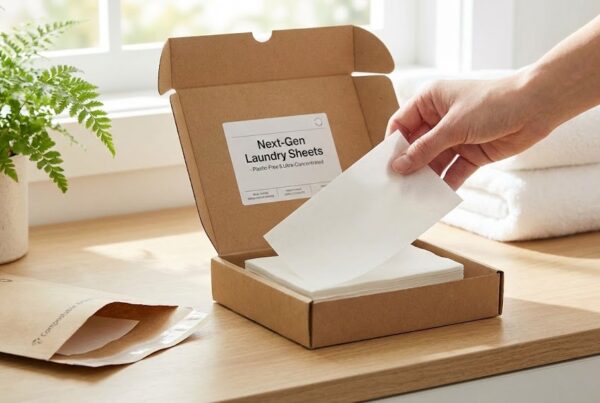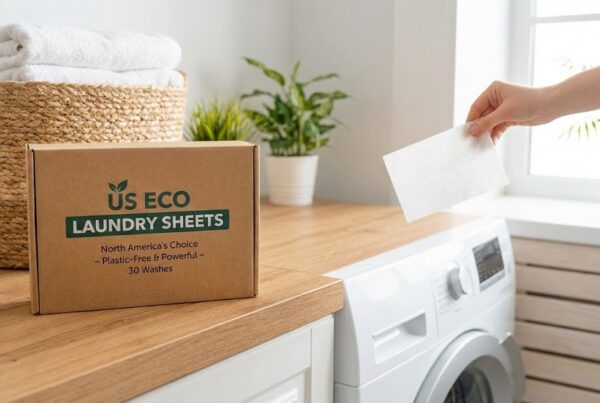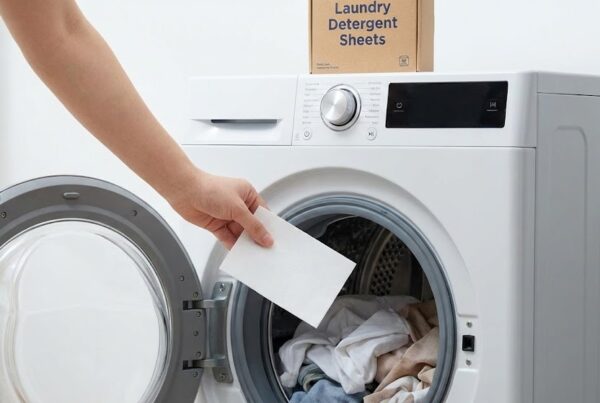How Cleaning sheets Reduce Plastic Waste in Your Home
Introduction
Plastic pollution has become one of the most urgent environmental issues today. Every year, millions of tons of plastic enter landfills and oceans, threatening wildlife, ecosystems, and even human health. One of the major contributors to this waste comes from household cleaning products—especially bulky plastic bottles of liquid laundry detergent.
Fortunately, there’s a smarter and greener alternative: cleaning sheets. These lightweight, water-soluble sheets are designed to replace traditional liquid or powder detergents. They deliver the same powerful cleaning results without the heavy packaging, unnecessary water content, or plastic bottles.
In this article, we’ll explain exactly how cleaning sheets reduce plastic waste in your home, and why switching to them is a simple yet impactful step toward a more sustainable lifestyle.
1. The Problem With Traditional Laundry Detergents
Traditional detergents—whether liquid or powder—are almost always packaged in single-use plastic containers.
-
Liquid detergent bottles are thick, bulky, and rarely get recycled.
-
Powder detergent boxes often contain plastic linings.
-
Detergent pods are wrapped in plastic-like films that may not fully biodegrade.
Globally, billions of detergent bottles are discarded each year, many of which end up in landfills or waterways. Since plastic can take hundreds of years to break down, every bottle adds to a growing environmental crisis.
2. What Are Cleaningsheets?
Cleaningsheets are ultra-thin, pre-measured sheets of concentrated detergent. They dissolve completely in water, leaving no residue and no packaging waste. Unlike traditional detergents, they are packaged in minimal, often compostable or recyclable materials—not bulky plastic.
This innovation changes the way we think about laundry. Instead of buying a large plastic jug, you simply take a sheet, toss it in the washer, and let it do its job.
3. Eliminating Single-Use Plastic Bottles
The biggest way cleaningsheets reduce plastic waste is by removing the need for single-use bottles.
-
A single box of cleaningsheets can replace several heavy plastic detergent bottles.
-
Households that switch can prevent dozens of bottles per year from entering the waste stream.
-
If millions of households adopted cleaningsheets, the reduction in plastic waste would be staggering.
This is one of the most direct and impactful ways consumers can reduce plastic in daily life.
4. Lightweight Packaging = Less Waste
Unlike bulky bottles, cleaningsheets are sold in compact, flat boxes. This has several eco-friendly advantages:
-
Minimal packaging: Often made from recyclable cardboard.
-
Less plastic: Packaging uses little to no plastic, unlike bottles.
-
Space-saving: Smaller packages mean less storage and less waste.
It’s a smarter way to deliver detergent without overloading the environment with unnecessary plastic.
5. Reducing Carbon Emissions in Transportation
Here’s something most people don’t realize: traditional liquid detergent is made up of up to 90% water. That means companies are essentially shipping heavy bottles of water across the world, wasting energy and fuel in the process.
Cleaningsheets are light and concentrated. A box that weighs just a few ounces can clean as many loads as a heavy gallon jug of liquid detergent. The lighter weight means:
-
Less fuel required for shipping.
-
Lower carbon emissions.
-
A smaller overall environmental footprint.
So, cleaningsheets not only reduce plastic waste but also cut down on transportation pollution.
6. Encouraging a Plastic-Free Lifestyle
Switching to cleaningsheets encourages households to rethink their plastic use. By starting with laundry, families can develop habits that extend into other areas:
-
Refillable cleaning tablets instead of bottled cleaners.
-
Bar shampoos and soaps instead of plastic bottles.
-
Reusable shopping bags and water bottles.
This small change can inspire a larger, more sustainable lifestyle.
7. Protecting Oceans and Wildlife
Plastic bottles often end up in rivers and oceans, breaking down into harmful microplastics. These tiny particles are eaten by fish and other marine life, eventually working their way into the human food chain.
By reducing the number of bottles produced and discarded, cleaningsheets directly help prevent more plastic from entering fragile ecosystems. It’s a household choice with global impact.
8. Cleaner Homes, Cleaner Planet
Beyond environmental benefits, cleaningsheets also make life easier at home:
-
No messy spills like liquid detergents.
-
Pre-measured doses—no overpouring or wasting.
-
Compact storage—takes up far less space in your laundry room.
This combination of convenience and sustainability makes cleaningsheets a win-win for households.
9. Cost-Effective and Long-Lasting
Many assume eco-friendly products are more expensive, but cleaningsheets often save money:
-
No wasted detergent from overpouring.
-
Lower shipping costs passed on to consumers.
-
Bulk packs provide long-term savings.
So, families can reduce plastic waste and save money at the same time.
10. A Step Toward a Plastic-Free Future
The future of laundry doesn’t have to include bulky plastic jugs. With cleaningsheets, we have a modern, eco-friendly alternative that works just as well—if not better—than traditional detergents.
Every household that makes the switch helps reduce plastic waste, cut emissions, and protect the planet. Together, these small steps can lead to massive change.
Conclusion
Plastic waste is a global crisis, but the solution starts at home. By switching from traditional liquid detergents to cleaningsheets, families can:
-
Eliminate single-use plastic bottles.
-
Reduce packaging waste.
-
Lower shipping emissions.
-
Simplify laundry routines.
It’s a simple, effective way to make your home more sustainable while still keeping your clothes fresh and clean.
If you want to make a real difference for the environment, start with your laundry. Cleaningsheets prove that less plastic doesn’t mean less clean—it means a cleaner planet for everyone.





